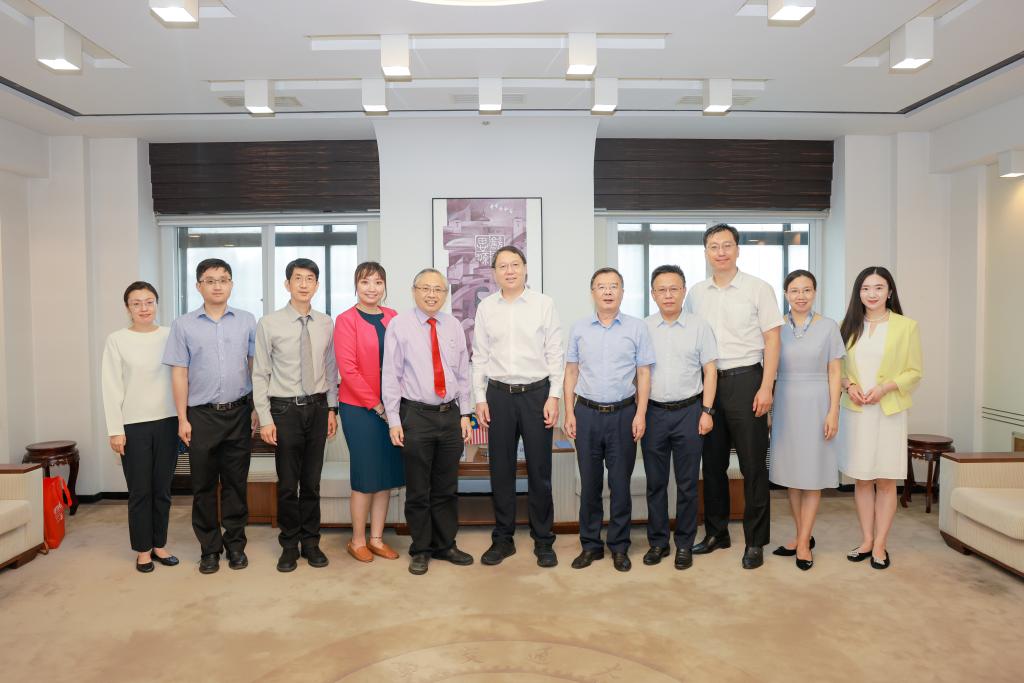
On July 2nd, 2024, President YU Zujun received the visiting Malaysian delegation headed by Prof. Ewe Hong Tat, Rector of Tunku Abdul Rahman University (UTAR). Vice President GUAN Zhongliang also attended the meeting.
YU Zujun warmly welcomed the delegation and elaborated on the BJTUˇŻs background information including its talent development, strength disciplines, international engagement, and contribution to national rail sector advancement. He pointed out that, with the support from Sino-Malaysian governments, the universities can work closely to conduct cooperation in student mobility, double degree programs, and joint research to promote mutual development in fields of rail transportation, telecommunication, and architecture, and further the construction of a community with a shared future of mankind.
Prof. Ewe Hong Tat gave thanks to BJTUˇŻs warm hospitality and presented a brief overview of UTAR, including its history, discipline development, teaching, and research achievements. He expressed his willingness to enhance collaboration with BJTU in full-fledged double degree programs, student and faculty exchange, and joint research. He hoped that both parties could join hands to promote the East Coast Rail Link project.
After the meeting, Prof. Ewe Hong Tat delivered a keynote speech entitled ˇ®Artificial Intelligence and Holistic EducationˇŻ.
Representatives from the School of Architecture and Design, the Office of Graduate Student Affairs, the College of International Education, and the Office of International Affairs also attended the meeting.
Established in 2002, Tunku Abdul Rahman University is a non-profit comprehensive private university financed by the Malaysian Chinese Association. With a total area of 1000 Mu, it encompasses two separate campuses, 14 faculties, 52 academic departments, and 28 research centers. The university offers over 110 diverse degree courses from undergraduate level to doctoral level. UTAR is currently home to nearly 800 international students from more than 10 countries and regions. It has 25,000 students and 1,200 faculties and staff, among which 95% are of Chinese nationalities.




